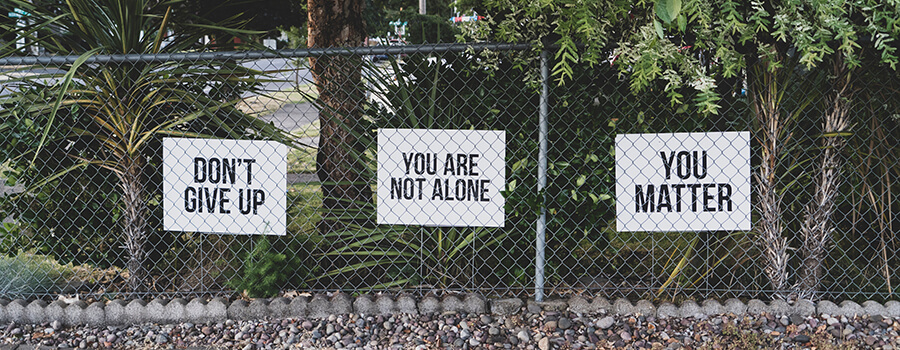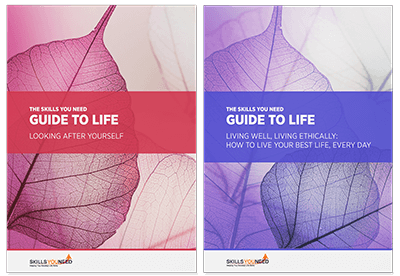8 Helpful Ways to Manage Your
Mental Health in the Workplace
See also: Recognising and Managing Emotions
According to the National Institute of Mental Health, nearly one in five American adults live with a mental illness. While many people have the necessary life skills to manage their condition and hold down a job, that doesn’t mean they don’t encounter challenges that make some days harder than others.
If you know you’re not doing as well as you think you could be in your place of business, take note of these tips below.
Being able to manage your mental health in the workplace might also have benefits for your home life.

Don’t Neglect Your Physical Health
It’s easy to assume that mental and physical health are two different things, but they are closely linked. When your physical health isn’t at its best, your mental health can suffer, and vice versa.
If you have any physical ailments causing you problems, such as carpal tunnel syndrome, fibromyalgia, headaches, or back pain, visit your local wellness center for advice, treatment, and support. Experts at such facilities can also ensure you’re armed with the necessary skills to manage your pain going forward, which might ease the burden on both your physical and mental health.
Recognize Mental Health Crisis Signs
Recognizing the signs of a mental health crisis can be crucial for accessing the help you need before your situation worsens. Some of the most common include having difficulty functioning, facing challenges with taking care of yourself, and experiencing intense or sudden changes in your mood.
You might also experience psychosis, paranoia, suicidal thoughts, and feelings of increased anger, agitation, or violence. Many people think about self-harm and will isolate and withdraw from others. If you notice any of these signs in yourself or the people around you, reach out for help. You might then be able to use a range of tools that give you complete control over your condition, rather than the other way around.
Talk to People
Even in an office building full of people, it can sometimes feel like you’re the only one living with a mental illness. In reality, you aren’t alone, and there are likely many people you associate with every day who face similar daily battles.
If you feel comfortable, talk to people about your experiences, either in a social or professional capacity. You might confide in a loved one, speak to a colleague you’ve formed a friendship with, or even discuss problems you’ve been having with your management team. Many people also benefit from therapy sessions, which allow you to discuss your feelings, fears, and emotions in a safe space.
Enhance Your Strengths
We’re often told to work on our weaknesses and turn them into our strengths, but a growing body of evidence shows that focusing on your strengths, as opposed to your weaknesses, might have profound effects on your mental health in a personal and professional capacity.
You might experience higher levels of happiness, lower levels of depression, more energy, and less stress overall. You might even be more satisfied with your life, more confident in your workplace, and healthier. While learning new skills in your professional life can be vital for your growth and development, it shouldn’t be at the expense of your health and happiness.
Get Outside
When there are only so many hours in the day to achieve a long list of tasks, it can be tempting to stay at your desk, work through your breaks, and block out the outside world until it’s time to leave. However, getting outside might be exactly what you need when you’re struggling with your mental health. Rather than working through your lunch break, take a walk in the sunshine or sit at a nearby park.
Studies have shown that exposure to bright light might increase serotonin, which is associated with improved mood and focus. If you’re struggling to focus on your work or are experiencing a low mood, getting away from your office and out into nature might have a positive effect.
Keep a Gratitude Journal
It can sometimes be frustrating to hear people tell you to look on the bright side of life. When you’re feeling at your worst, looking on the bright side and adopting a positive mindset isn’t always easy.
While you don’t have to act positively at work when you’re not feeling it, you might see some value in keeping a gratitude journal. Each day, you can write down a few things you’re grateful for that day and allow your body to feel the positive feelings associated with them.
Many studies have shown that expressing gratitude and reflecting upon life’s blessings for just five minutes a day has the potential to make people feel happier, optimistic, and more enthusiastic about life.
Talk to Your Management Team
Your employers can’t attempt to support you in your times of need if they don’t know about them. If your workplace typically has a supportive culture and prioritizes mental health, make your struggles known. Your employers might be more accommodating to your paid time off requests, provide counseling services, and even offer remote work opportunities if they’re available. By being open and honest about your illness in a way that still allows you to protect yourself, you might experience a level of support you didn’t think was possible.
Take a Break
You might love your job, your managers, and the people you work with, but that doesn’t mean you want to spend every waking moment at your place of employment. When you feel like you have too much on your plate, use your self-care skills and prioritize a well-deserved break.
Taking a paid vacation doesn’t mean you have to go anywhere, but it does give you a break from working hard. You can lounge around at home, visit new locations, and spend time with loved ones. You might then feel refreshed and revitalized upon your return.
Further Reading from Skills You Need
The Skills You Need Guide to Life
This two-part guide is an easy-to-read summary of the essential skills you need for a healthy mind and body.
The first eBook, Looking After Yourself, covers some of our most popular content and will help you to live a happier, healthier and more productive life.
The second eBook, Living Well, Living Ethically, considers how you can live your best life all the time. It helps you to answer the question: how can I avoid having too many regrets about my life?
Managing your mental health in the workplace is never easy, especially if you feel alone in your battles or misunderstood. However, you have more mental health skills than you might think. Rely on a support network, look after your body, and take breaks. You can then be in control of your mental health rather than it being in control of you.
About the Author
Ronica Samuel: I began writing as a professional on my personal blog and then discovered my true calling, which is writing about technology, news and gadgets in general. I have been a technical writer, author, and blogger since 2010. I am an industry watcher who stays on top of the latest features and am extremely passionate about juicy tech news and anything related to gadgets.


